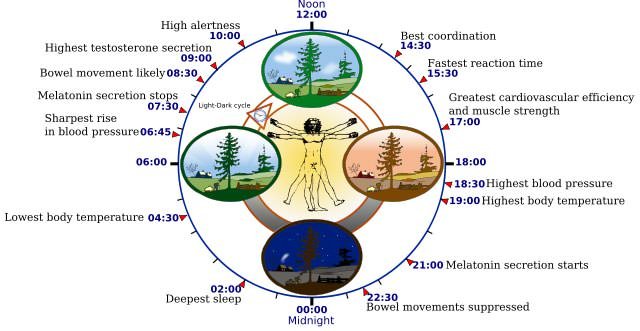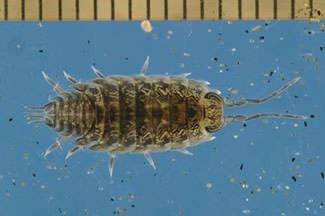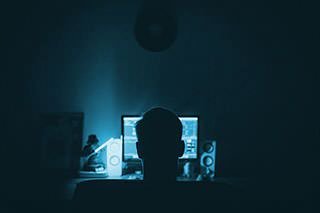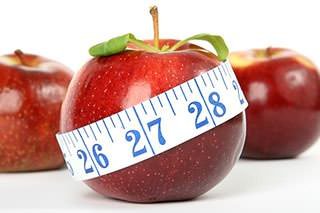The circadian rhythm is a biological clock that is linked to the day/night cycles. It regulates much in our bodies, as well other animals, plants, fungi and cyanobacteria.

Source
Night-time Animals
Other animals even have extra biological clocks in addition to the circadian rhythm, such as regulations for feeding or reproduction being based on lunar or tidal cycles. A recent study showed how a nocturnal animal (Scyphax ornatus) only leave their sand burrows at night to feed before the tide comes in.
Despite appearing to follow a semilunar feeding cycle in the wild, the animals follows internal biological clocks when deprived of external stimuli like seeing the moon, hearing the waves, etc. But using artificial sounds changed the perceived length of the day and night/tidal cycles.
Nonhuman animals aren't the only ones affected by artificial manipulations of natural biological rhythms or clocks.
Sleep and Artificial Light
The circadian rhythm in humans has a similar night cycle that is activated by stimulus, or the lack thereof. Blue light from the sun suppresses the production of melatonin, keeping us alert and regulating the circadian rhythm. When the day ends and the sun goes down, that's the natural signal that it's getting time for bed, and the melatonin levels start to increase.
Another recent study confirms the issue with blue lights from digital devices and LEDs. Twenty-two study participants had an average 58% increase in nighttime melatonin levels when they wore short wavelength-blocking glasses that blocked the blue light. They fell asleep faster, slept better, and longer by 24 minutes each night.
To keep our natural "rhythm" going, we should pay attention to the artificial blue light being emitted from our technology. Lead of the study, Dr. Lisa Ostrin, recommends "limiting screen time, applying screen filters, wearing computer glasses that block blue light, or use anti-reflective lenses to offset the effects of artificial light at nighttime."
Blocking the light means we can still do work at night, but also get healthier sleep. 75% of Americans report poor or insufficient sleep has an impact on their daily activities.
Muscles, Fat and Insulin Regulation
Our dependence on the circadian rhythm doesn't stop there. Recent findings on fruit fly muscles show the energy is requested from fat storage tissues, and that this circuit is regulated by the circadian rhythm. This impacts fat storage, as during the day this circuit allows energy to be taken from lipids, meaning lipid management is important to make sure there is energy. While at night, we are less active, and we don't need to accumulate fat for energy purposes that might be required to move in the day. This can be a factor in obesity.
In this research, they also link fat and diabetes which many other people have done. The study explains how two genes are crucial for regulating fat storage and release, and they also regulate insulin levels and tell the body whether to store energy as fat or release it. Breaking the pathway can lead to disregulation of insulin and fat levels.
Our eating and sleeping behaviors also affects the signaling pathway. It probably matters when we eat, as our muscles signal when energy is needed and the circadian rhythm both affect the signaling pathways.
Calorie Restriction
Eating really does affect our body weight and circadian rhythm. A recent study on mice suggests that the time of day feeding* is done impacts weight more than calorie restriction. Mice on regular feeding/active cycles with calorie restriction do better at losing weight than other mice that are fed the same amount but at other rest time during the day.
Calories restriction seems to work best if they are consumed in the day while awake and active. Eating at the wrong time, like at night, will not lead to weight loss, despite calorie restriction.
Multiple Circadian Clocks
The overall circadian rhythm is based on multiple circadian clocks in our biology, not one central clock timing all of the bodies processes. Research published in a study this past May demonstrated how the central brain clock and peripheral clocks communicate with each other.
The fruit flies only hatch at the expected natural time if all the required clocks are in rhythm, as a functioning peripheral click alone does not sustain the early-morning biological hatching time. The hatching rhythm was slowed down to make it increase in time, from 24 hour to over 27 hours.
All our internal clocks needs to be running for the whole body to function in alignment to the natural rhythms we are accustomed to.
I pretty much wake up at 7-8am and go to bed at 11pm-ish. I look at my LCD monitor with LED backlight for hours each day, into the night until I go to bed. I don't see myself stopping to go on my computer when the sun sets :P
Have you noticed any cyclical requirements for your eating or sleeping behaviors?
Do you notice if the time you go to sleep or the time you eat affects your energy levels?
Do you avoid blue-light displays and do you find it helps your sleeping?
Thank you for your time and attention. Peace.
References:
https://en.wikipedia.org/wiki/Circadian_rhythm
https://phys.org/news/2017-06-evidence-animal-behaviour-interaction-tidal.html
https://www.nature.com/articles/s41598-017-03245-3
https://medicalxpress.com/news/2017-07-artificial-digital-devices-lessens-quality.html
http://onlinelibrary.wiley.com/doi/10.1111/opo.12385/abstract
https://phys.org/news/2017-07-muscles-energy.html
http://www.cell.com/current-biology/fulltext/S0960-9822(17)30705-4
https://www.sciencedaily.com/releases/2017/07/170718091542.htm
http://www.cell.com/cell-metabolism/fulltext/S1550-4131(17)30349-2
https://phys.org/news/2017-05-circadian-clocks.html
https://www.nature.com/articles/ncomms15563
If you appreciate and value the content, please consider:
Upvoting  , Sharing
, Sharing  or Reblogging
or Reblogging  below.
below.






